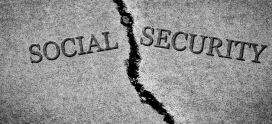CONSIDERING BORROWING FROM YOUR OWN 401(k)? PROCEED WITH CAUTION
It’s fast, simple and requires no credit check. What’s more, you pay yourself back—not a bank or any other lending institution–over time and with interest.
It sounds perfect. Except it’s not.
Dipping into your 401(k) has plenty of pitfalls and is only recommended in certain cases.
For starters, by taking a loan out of your employer-sponsored retirement account, you are jeopardizing future growth. The whole purpose of a 401(k) is to set aside funds for many years to be invested for your retirement; accessing those monies prematurely defeats that purpose. Until your loan is paid back, a portion of your future contributions will be applied to paying it off first, rather than building your account. As a result, you will lose on two critical counts: loss of potential gains from a reduced principal and from reduced contributions.
You’ll also be losing out on the critical tax benefits of a 401(k). That’s because contributions are not included in calculating your state and federal income taxes. But the interest on any loan you withdraw from the retirement account is not tax-deductible and is paid out of taxed income. Another costly double hit.
Most employer plans have a repayment clause requiring the immediate full reimbursement of the loan if you quit or get laid off. Even if you are able to pay back the loan right away, you will incur a 10% penalty on the withdrawal amount if you are younger than 59½. And if you cannot afford to repay the loan, you may have to forfeit a new job opportunity with a different employer.
Funds in 401(k) are protected from bankruptcy. But 401(k) loans are not. If you plan to use the loan to pay off other debt without resolving your overall financial picture, you might find yourself filing for bankruptcy. Those funds that would have been protected will instead be forfeited to creditors.
If you find yourself needing to tap into your retirement savings, you are probably not in a stable financial position. If you access your 401(k), you may digging yourself even deeper, while hurting your retirement years later. Instead of borrowing from your 401(k) and setting yourself up to possibly extend your financial stress, consider other options to overhaul your budget and reduce expenses.
Despite these drawbacks, in some cases, it may be reasonable to take a loan from your own 401(k). If you have recently inherited funds and are awaiting receipt of the actual monies but want to buy a home right away, taking a short-term 401(k) loan makes sense.
Also, if you are financially stable, disciplined and fully aware of the pitfalls, taking the loan may also be a safe option. This works only if you are committed to repaying the loan immediately and have a history of being financially responsible.
In all cases, you should weigh the benefits of accessing retirement funds against the potential loss to your future financial security. In retirement, your options for generating income are severely limited. Time to recover from losses is equally short. On the other hand, situations sometimes arise that may justify prematurely tapping into retirement funds.
If you are facing unexpected expenses and are considering borrowing from your 401(k), contact us to help you evaluate all your options first. We will review your personal portfolio and devise a sensible plan to resolve your current needs while protecting your future financial security.
SCHEDULE A FREE CONSULTATION TODAY




